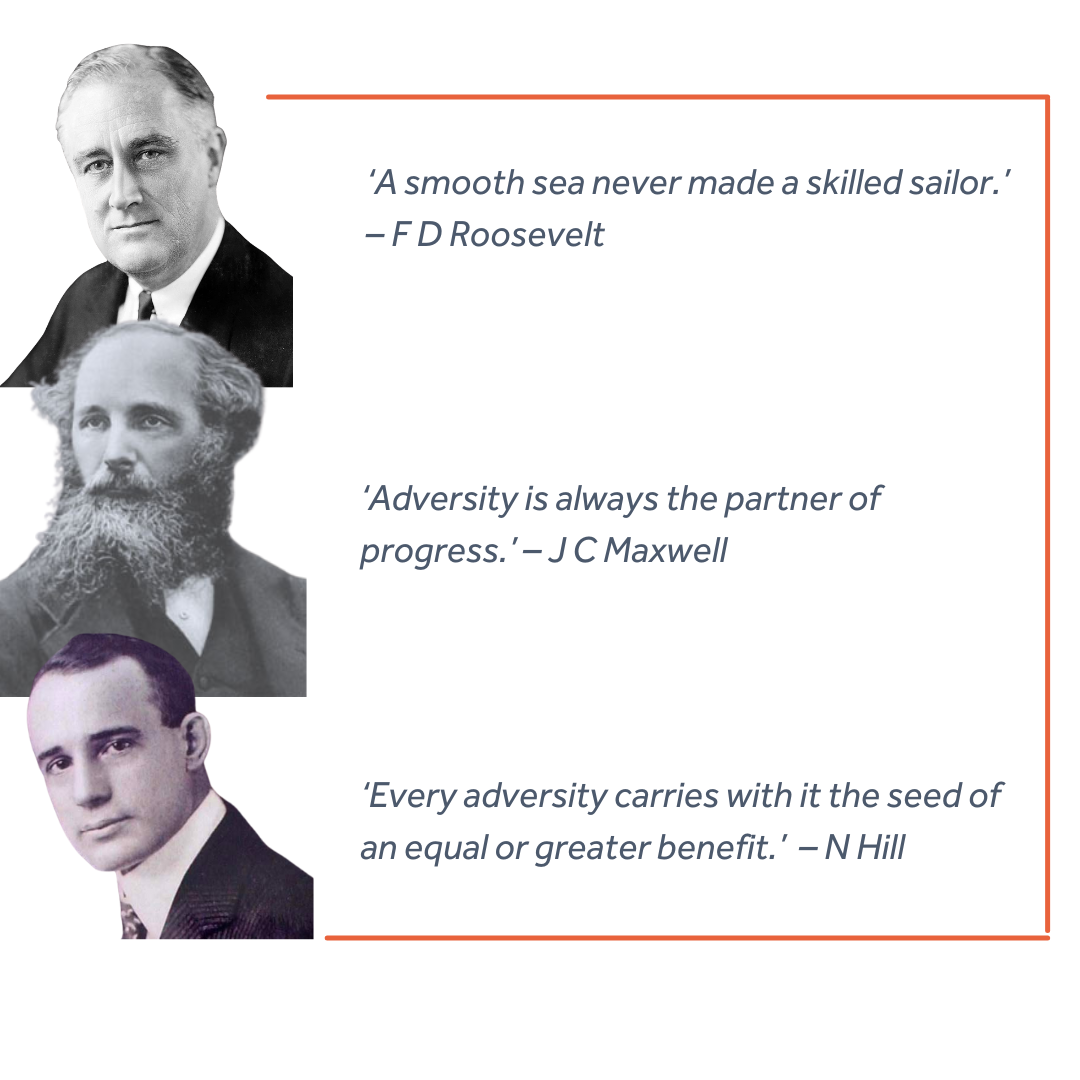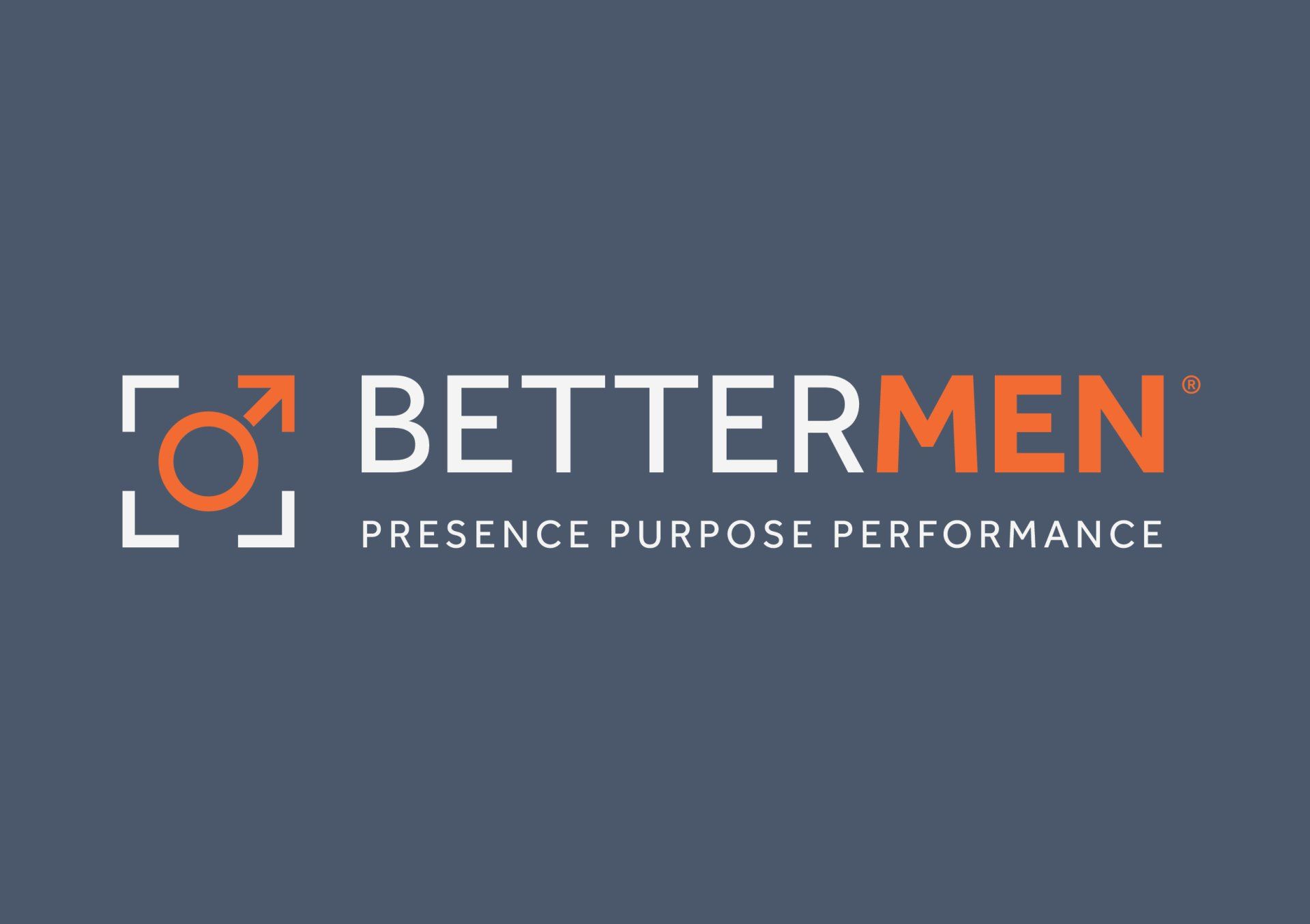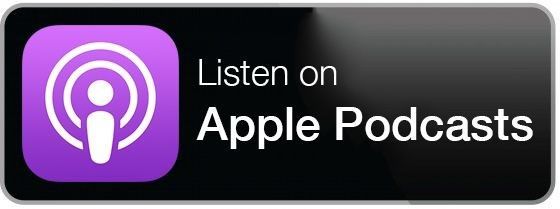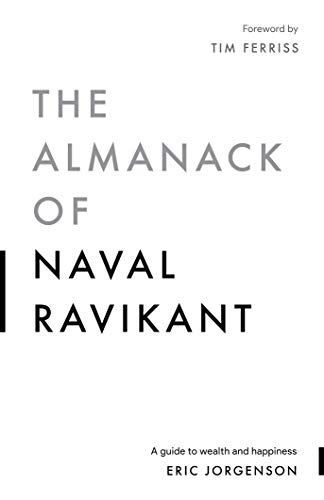September 2024
Life is busy and time is precious. This monthly bulletin saves you time and effort by providing you with a range of resources relating to all things men and mindset.
Setting Boundaries: Protecting Your Well-being.

Don’t just read the quotes. Instead, take a moment to consider them and hold them up against your life.
This month’s quote theme is: Adversity and adaptation.
Adversity plays a critical role in both personal and professional growth; it serves as a catalyst for adaptation and growth. On a personal level, facing challenges pushes men beyond their comfort zones, forcing them to develop resilience, problem-solving skills, and emotional strength. These experiences can lead to a deeper understanding of oneself, fostering qualities like patience, empathy, and perseverance. For example, someone who has faced significant personal setbacks, such as divorce, bereavement, business or career failure, may emerge with a renewed sense of purpose, a stronger character, and a greater appreciation for the positives in life.
In the professional realm, adversity is equally important. Challenges in the workplace can be instrumental in building, or tuning, professional skills and over time, professionals who face and overcome adversity are often better equipped to handle future challenges. Adversity isn’t just about surviving hardship; it’s about thriving because of it; turning difficult experiences into opportunities for self-improvement and growth.
Ultimately, adversity is an essential component of personal and professional development. After the eye of the storm has passed, it equips men with the skills to better navigate the complexities of life and work - leading to a more fulfilled and impactful existence.


Sit down, take a minute, read, reflect or journal on the prompts presented.
This month’s prompt theme is: The need for Boundaries.
The challenges of midlife are ubiquitous; it’s a stage of life that brings a unique set of challenges and demands that, if not managed effectively, can easily cause overwhelm or burnout. As men navigate life between their mid 30’s and early 50’s, they will find themselves juggling multiple responsibilities, simultaneously - career, family, aging parents, friends, etc, all whilst trying not to lose touch with their own aspirations and ambitions.
In this context, boundaries become a critical tool for maintaining balance, well-being, and a sense of control over one’s life. Boundaries serve as the framework which protects more than just our time; they importantly protect our wellness and relationships. Without clearly defined, and upheld boundaries, feelings of purposelessness and work-life conflict are almost inevitable. Conversely, clear boundaries help to prioritise and protect what truly matters; they ensure our time and energy are invested in activities and relationships that align with personal values and long-term goals. Simply put, boundaries are limits we set to protect our lives.
Societally, we live in a world where we’re exposed to constant demands, both personally and professionally; I often state there are two types of people in this world: those letting life happen and those making life happen – men living with boundaries are the most definitely the latter. Consider the prompts below:
I. Do I protect my time, space and energy well enough to live life on my own terms…
II. Am I comfortable sharing a ‘no’ with family, friends and colleagues – if not, why not…
III. If I were to create 3 boundaries that would enable me to live life more fully, they would be…

This month’s recommendation is: The Rich Roll Podcast.
In a world saturated with comforts, overstimulation, and perpetual convenience, a crisis has quietly emerged. It is the pervasive influence of what Michael Easter, author of one of my favourite reads from 2023, The Comfort Crisis, calls the ‘Scarcity Brain’ - also the title of his newest bestseller.
Michael reveals why our evolutionary origins in scarcity clash with our present-day reality of abundance. The conversation extends to Michael’s journey with sobriety, exploring the scarcity loop’s impact on addictiveness and delves into strategies for reducing addictive behaviours, and achieving balance with technology; also discussed is social media’s impact on the brain, and minimalism. It’s an informative and provoking listen:


This month’s book recommendation is: The Almanack of Naval Ravikant.
Naval Ravikant is an entrepreneur, philosopher, and investor who has captivated the world with his principles for building wealth and creating long-term happiness. The Almanack is a succinct presentation of Naval’s wisdom and experience from the last ten years and is shared as a curation of his most insightful interviews and poignant reflections. This isn’t a how-to book or a step-by-step gimmick. Instead, it offers insight into how to walk your own unique path toward a happier, wealthier life.

The Depleted Man is a shadow of who he could be - and he knows, he feels it, every day.
When you see a successful man, you’re seeing ONLY the results of his efforts. What you’re not seeing is what it’s taken for him, and FROM HIM, to get where he is.
Let me introduce you to the concept of the Depleted Man. It refers to a man who feels emotionally, physically, and mentally spent due to the pressures and responsibilities of being a leader, father, and husband. His depletion results from the relentless demands he places on himself to excel in his multiple roles, simultaneously.
As a leader, he faces the constant stress of decision-making, maintaining performance, and navigating workplace dynamics. Spread thinly, coupled with a reluctance to delegate and a cruel inner chatter, he erodes his sense of self and well-being.
As a father, the Depleted Man strives to be present and supportive by balancing work commitments with the desire to nurture and guide his children. This juggling act can lead to feelings of guilt and inadequacy, especially when time and energy are insufficient to meet parental needs. The emotional component of being a supportive partner adds another layer of complexity, as maintaining a healthy, loving relationship requires being present, patient and importantly, emotionally available.
The cumulative effect of these responsibilities can leave the Depleted Man feeling overwhelmed and disconnected from his work, loved ones and himself. Unless there’s a change of tact, there’s typically a gradual demise.
Fatigue will lead to burnout, and burnout will unquestionably diminish his performance affecting his health, relationships and overall life satisfaction.
Recognising and addressing depletion is crucial. If caught, in time, it’s moderately manageable. If not, and the internal depletion manifests externally, the process of recovery and rebuilding is significantly more nuanced; it involves setting boundaries, seeking support, re-investing in relationships, employing revised leadership styles and prioritising self-care to restore balance and effectiveness.
If you're feeling depleted, do something about it. If don't know what to do, and have tried and failed to re-ignite your enthusiasm for life - one DM to me could be all it takes to change your trajectory.


This month’s TED Talk is: What makes you, you?
Psychologists like to talk about our traits, or defined characteristics that make us who we are. But Professor Brian Little, in a highly engaging manner, shares why he’s more interested in moments when we transcend those traits - sometimes because our culture demands it of us, and sometimes because we demand it of ourselves (think adversity, like discussed earlier on in this month’s Bulletin). Join Prof. Little as he dissects the surprising differences between introverts and extroverts and explains why your personality may be more malleable than you think.

On this month’s walk, we shared not only a great route, the Dragons Back, in the Black Mountains but also great conversation. Our topic of discussion was:
What is a difficult conversation that you know you need to have but for whatever reason, haven’t?
Our route, at close to 10 miles and with over 2500ft of elevation gain was right at the end of our collective abilities; that said, despite the fatigue, the views were outstanding and conversation constant. We passed the ruins of Dinas Castle before venturing off-piste and heading toward Grwyne Fawr Reservoir. After a lunch stop and climbing Waun Fach our descent back to the carpark (and pub) was a welcome 3-mile relief.
Our next walk is on: Sun 15 Sep.
If you’re keen to lace up your boots and join us, register below.
If you want to walk our August’s route, it can be Accessed Here
Additionally, here’s a collection of images that capture our most recent meet: Click Here

Coming out of the summer feeling like you’re languishing or that middle-age malaise is setting in?
Do you find yourself questioning ‘it this it’, or fearing your best years are behind you? In less than 2 minutes, my Do I Need A Coach? diagnostic tool will help you identify the areas of life that are either helping you succeed or hindering your progress.
Upon completion, you’ll receive a PDF report detailing your unique score with specific recommendations designed to enable you to progress – both personally and professionally.






